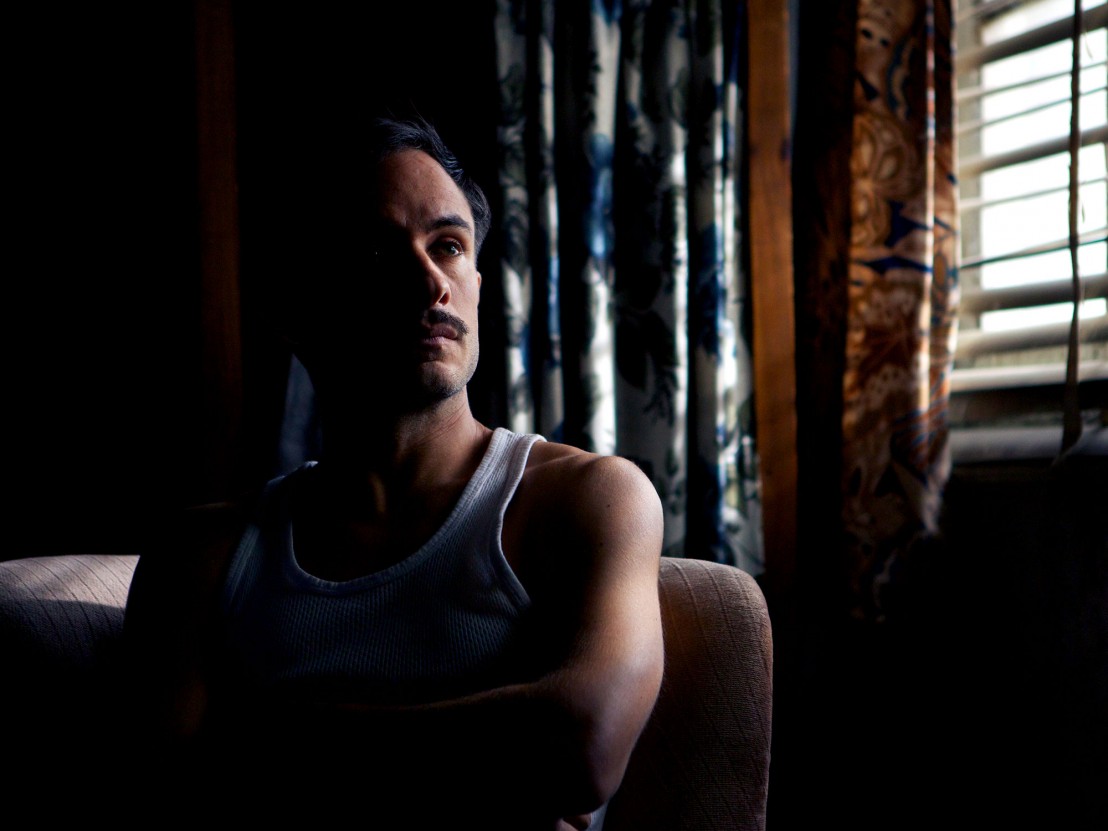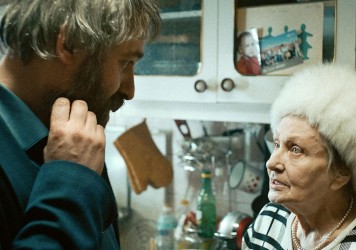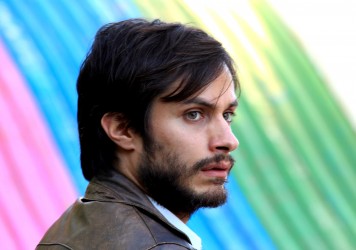
The great Pablo Larraín delivers a stirring, soaring portrait of Chile’s most treasured poet.
Chilean director Pablo Larraín’s form continues with a magnificent film about Chile’s beloved poet, Pablo Neruda. Part biopic and part cinematic impressionism, Neruda begins with Larraín naturalistically setting the political scene in 1948, with lots of characters talking in brisk and wry dialogue (“Communists hate to work. They’d rather burn churches. It makes them feel alive.”) As land is crossed, the film’s tone becomes increasingly heady. By the third act, it verges into a kind of emotional fantasy, as two characters bind to become one soul.
Neruda’s (Luis Gnecco) position as a Communist senator by day, poetry-reading sex god by night is challenged by the rise of fascism. President Gabriel Gonzalez Videla outlaws communism, so Neruda takes flight with his Argentinian aristocrat wife, Delia del Carril (Mercedes Morán), to the seaport city of Valparaíso. Their hide-out isn’t the opulent lifestyle that Neruda has become accustomed to, but at least he’s still able to source naked women, and with the help of allies, publish new poetry on the sly.
Meanwhile, we meet the mysterious character who up to now has been providing an idiosyncratic and philosophical voiceover. “This is where I come in,” says the voice and suddenly there is Gael García Bernal. He is Oscar Peluchonneau, the copper charged with bringing Neruda to justice. He would be classed as Neruda’s nemesis if only he didn’t have the heart of an artist and the air of Inspector Clouseau. Bernal makes a fool of his character in the subtlest of ways. Oscar dresses sharp, brim of hat tilted just enough to amuse. He walks with a cocksure swagger, which – as Bernal is small of stature and slightly over-styled in his maroon suit and neat moustache – is endearing, rather than aggressive.
The poet and the policeman seems telepathically linked, as Neruda leaves behind books which Oscar reads. Their thoughts are interlinked and their perspectives are interlinked. When Larraín switches focus from one man to the other, the tone stays the same, which is to say, pumped up with humourous levity. Guillermo Calderón’s script is exquisite. Each line is infused with a richness that suits the poet subject. Despite a story arc concerning a man on the run, the atmosphere is dreamy. The pursuer considers the pursued with rhapsodic attention to his particulars. “The poet is a public menace and an unforgettable lover,” he says wistfully over a radio bulletin. A reverse Stockholm syndrome is happening and it begs the question: which man is this film really about?
For although there are scenes galore of Luis Gnecco embodying the full figure of the poet, we don’t go inside his mind. Arguably this is because poets wear their insides on the outside. Through conversations with worldly Delia, strategising with political helpers and mingles with all kinds of people who love him, a magical forcefield emerges. Larraín’s portrait is about effect, not cause. This isn’t an origins story. His Neruda is already a towering idol.
Larraín pools all resources to build an atmosphere of dreamy other-worldliness. His camera zooms and scans at a pace that feels calibrated to make hairs stand on end. This is the sort of film in which light is often stealing the scene: suns glints on the lens, snow twinkles under its glare, smoke dissipates in great white shafts, as in the middle of dusty rooms, men and women interact like enlightened souls.
Driving the narrative is the question of what will happen when Peluchonneau eventually catches up with Neruda. The finale takes place in the Andes as Neruda tries to cross the snowy mountains to escape to Argentina. By this point, it’s entirely plausible that one character is a figment of the other’s imagination. “The poet tends to believe that the world is something he imagined,” is a line that lends credence to the idea that with Neruda, Larraín has created a film that, above all else, abstractly evokes the essence of his subject. It is a privilege to witness the awesome spectacle of one great man interpreting another and in this way creating a sub-genre of magical realism: poetical realism.
Published 13 May 2016

One of the progenitors of the Romanian New Wave returns to the Cannes competition with a rambling family drama.

By Ashley Clark
Gael García Bernal takes down a dictator with glossy TV advertising in this brilliant Chilean satire.

By Tom Graham
Thirty years after its original release, The Official Story remains a vital account of the country’s military dictatorship.